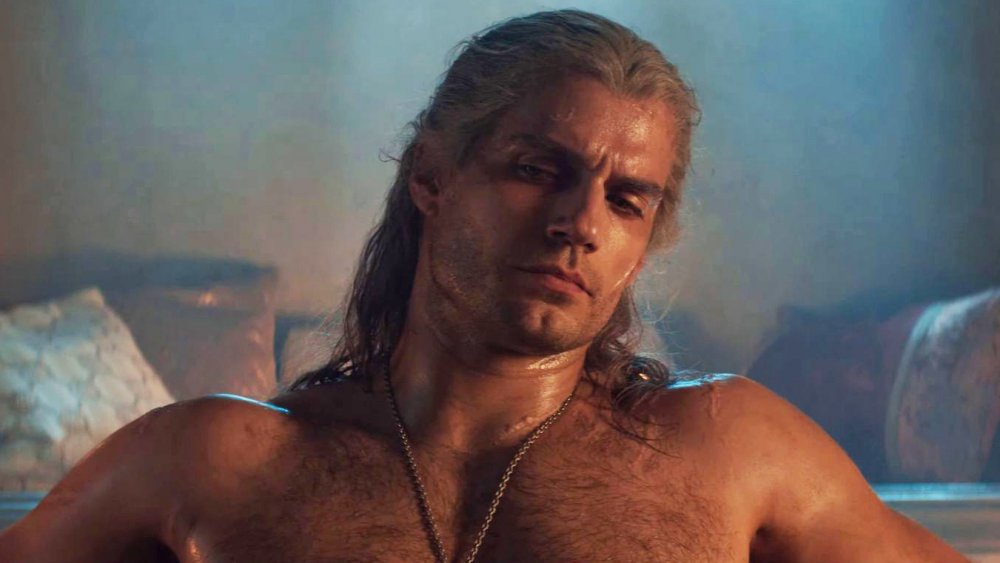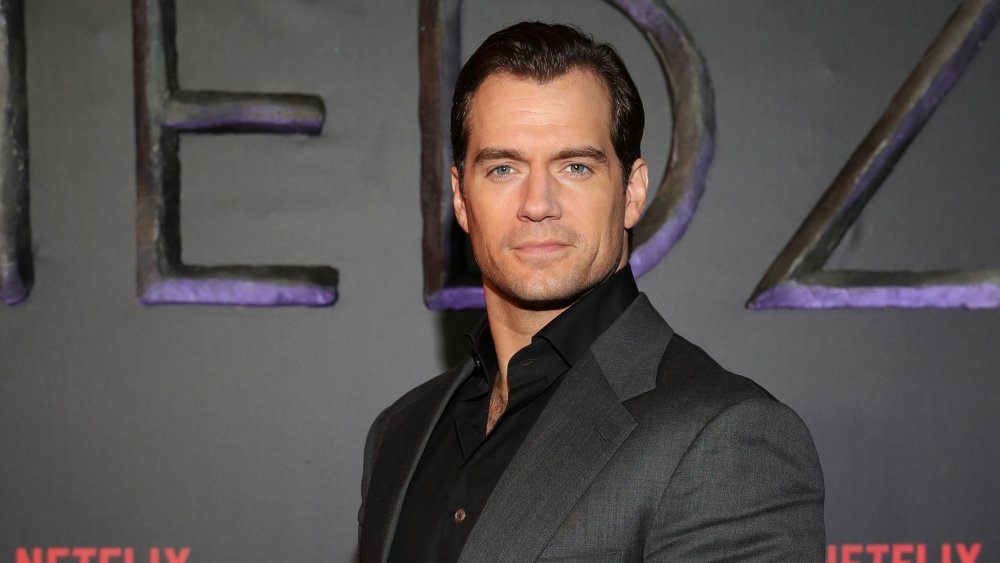Henry Cavill Reveals The Worst Part Of Playing The Witcher
Henry Cavill's fans aren't the only ones who are thirsty.
The new face of Geralt of Rivia recently sat down with the inimitable Graham Norton back in his native England to talk about his role on Netflix's The Witcher. The scene everyone was desperate for after the first Witcher trailer arrived — the monster-hunting Geralt sitting in that famous wooden bathtub, naked as the day he was born — was the big clip featured during Cavill's interview with Norton, and that naturally invited questions about how he prepared for The Witcher's most famous scene. All of us are at least casually familiar in this age of Thors and Supermen that the diet required to maintain a perfectly sculpted brickhouse physique is punishing and mostly comprised of eating one's weight in boneless, skinless chicken breasts. Chatting with Graham about how he got ready to portray the titular Witcher on Netflix's new series, Cavill revealed a
new twist in the horror-show that putting perfect bodies on film necessitates: purposefully dehydrating himself over several days.
Cavill explained that the worst part about playing Geralt wasn't going completely without water for three days straight, but rather was the sharp decline of fluids in that same window: "On the first day, you'll have, like a liter and a half [of water], the second day a half-liter, and then the third day, no water, and you'll shoot on the fourth." He went on to say that by the time he's done shooting on that fourth day, he's "the most miserable person on Earth."
But why, though? Isn't putting Henry Cavill through an incredibly bland and utilitarian diet for months on end for the sake of vanity enough?
Running the gauntlet for a day's worth of perfection
This method of purposeful dehydration is a common one for bodybuilders preparing for competition or photoshoots, boxers and MMA fighters trying to drop pounds before weigh-ins, and actors alike. Sure, Cavill is still massive in size and could probably crush a watermelon between his bicep and forearm, but the high-definition cut of his musculature — in particular, a really defined six-pack — requires tricking the body temporarily. We aren't meant to look like the thing Hollywood constantly presents to us, and to achieve it means very careful maintenance under the direct observation of nutritionists and doctors to avoid serious bodily harm. Cavill is correct to point out that the overall intense exercise regimen to bulk him up is intended to keep him healthy to do his own stunts with minimal possibility of injury, but depriving himself of the most important thing humans need to live — water — feels like a particularly cruel turn simply for aesthetics.
Dehydrating is the final step in the preparatory process towards a temporary period of maximum muscle definition, and bodybuilders refer to it as "peak day." The first stage (about two weeks before the target date) requires temporarily increasing your sodium consumption, which tricks the body's usual water retention ratio. At first, it will retain water, but eventually re-adapt and normalize. When sodium intake is severely cut a week later, water will rapidly exit the body along with it, meaning there's almost no added water weight or possible bloating because of it.
Along with this process, consumption of carbs are cut to almost nothing. This supercharges burning (again, very temporarily) the minuscule amount of excess fat left in the body. No carbs means no carbs, and since that rules out any sugar whatsoever as a fast energy source, the person must supplement with creatine for their high-intensity exercise regimen — because all of that still has to keep going, too, without any less frequency. By a week out from the target date, Henry Cavill's diet is reduced to little more than unseasoned lean chicken and maybe pork for something a little different. This depletes his body's store of emergency sugars called glycogen in anticipation of bingeing on carbs at the last possible second before the target date to maximize muscle mass.
The next nutrient for tactical starvation is sodium, as noted earlier. Negating sodium takes with it all the excess water in the body, so this is also where the dehydrating process begins, just a few days before "peak day." It's a precarious balancing act to increasingly deprive yourself of water, and yet give your muscles (and all the important still-squishy stuff inside, too) enough hydration to handle those workouts that still have to get done. The skin thins for the lack of fluid within and underneath it, giving that last little bit of definition like vacuum molding around a creviced object. At the end of all that, you get exactly one perfect day to have pictures taken of yourself for a calendar — or, in Cavill's case, get slicked over with baby oil and tossed into tastefully-opaque bathwater for ten hours of filming for five minutes of sexy footage.
For The Witcher, Henry Cavill had to go through this grueling process repeatedly for every single one of the (several) scenes in which he's featured shirtless, because again, his super-cut physique can't be consistently maintained for the weeks and weeks it takes to film a TV series. You're hungry and thirsty, and when you're not working in front of a camera, you're still working off-site in a gym with an entire team of health-conscious people monitoring you down to the finest, dehumanizing detail. Finally, you live the maddened existence often parodied in cartoon deserts, imagining water just off the horizon. Cavill even said in the interview that by the end of all those day-4 shoots, he could smell water nearby. Bless him for his dedication and patience, because that sounds like the absolute worst.

